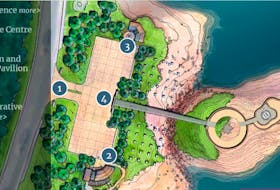Forty-five Canadian billionaires have more wealth than the combined GDP of the four Atlantic provinces. There’s something seriously wrong with this picture, or so said Nova Scotia NDP leader Gary Burrill via Twitter a few days ago.
Forty-five Canadian billionaires have more wealth than the combined GDP of the Atlantic provinces. There's something seriously wrong with this picture.https://t.co/BNv9XZGo2u#nspoli #cdnpoli
— Gary Burrill (@GaryBurrill) November 16, 2019
Burrill is not generally given to understatement, or overstatement for that matter. He chooses his words judiciously, as he did in this case.
Unencumbered by such laudable restraint, let’s label the inequitable distribution of wealth in the land, and across much of the industrialized world, for what it is: morally repugnant and dangerous to civil society.
Canada’s 45 billionaires aren’t to blame. They’re merely the most obvious manifestation of the great and growing divide between the few who have it all and a little more, and the many that don’t have much, including a chance at getting any – wealth that is.
The information Burrill shared comes from an annual report produced by the Swiss wealth management firm UBS. Canada’s ultra-rich 45 collectively controlled more than $153 billion in 2018, which was three per cent more than the $148.5 billion they held a year earlier.
The combined GDP – the total of all economic activity – of the four Atlantic Provinces was estimated at about $112 billion in 2017. We can pile the economies of Canada’s three northern territories – about $10.5 billion annually – on top and still not match the loot socked away by the fabulous 45.
The extreme wealth of a very few is but a snippet of the larger story.
In Canada, the richest one per cent took home about 14 per cent of the nation’s total income in 2015, compared to eight per cent in 1980. In the United States – that bastion of unfettered enterprise and therefore of income and wealth inequality – the top one per cent grabbed more than 20 per cent of the nation’s income in 2015. In 1980, America’s richest one per cent took about 10 per cent of the national income. Who, other than the right-wing think tanks funded by the wealthy, could look at those numbers and not see a problem and one that’s only getting worse?
The richest 20 per cent of Canadian households hold between 66 and 70 per cent of the nation’s wealth, leaving the other 80 per cent to scramble for the remaining third.
The story turns tragic when you consider that the poorest 20 per cent of Canadians subsist on less than one per cent of the country’s wealth.
Both the Organisation for Economic Co-operation and Development (OECD) and the World Bank have been sounding the alarm about growing inequality in wealth and income distribution for years.
“The social compact is starting to unravel in many countries,” according to OECD Secretary-General Angel Gurría. “Uncertainty and fears of social decline and exclusion have reached the middle classes in many societies.”
The fear that Gurría identified helps to explain the rise of Trump and other nationalistic tub-thumping demagogues who misdirect blame for the decline at innocent “others” – immigrants being the most popular scapegoats. It’s a con but it works because when people think the deck is stacked against them they want an identified target for their anger.
In 2002, the World Bank warned that economic inequality is driving up rates of violence, both within countries and between them. High levels of inequality create a permanent underclass that is forced to compete, sometimes violently, either with itself or with others. Since 2002, the inequity at the root of such violence has only increased.
Wealth and income inequity, according to the OECD, is both self-perpetuating and detrimental to the overall economy.
Kids from the poorest end of the economic spectrum have less opportunity to attain the education they need to climb the economic ladder. As a result, they are trapped in their disadvantaged state and unable to fully contribute to the economy.
The obvious solution – tax the rich – is frequently dismissed as too simple and too obvious. Of course, such dismissals come most often from the economically elite or, more likely, from the think tanks they fund for the very purpose of discrediting the obvious.
The dangers to civil society created by such division were recognized long before the OECD, the World Bank or even Gary Burrill waded in.
“… such a city should of necessity be not one, but two, a city of the rich and a city of the poor, dwelling together, and always plotting against one another.”
That’s from Plato’s Republic, written more than 2,300 years ago.
Jim Vibert, a journalist and writer for longer than he cares to admit, consulted or worked for five Nova Scotia governments. He now keeps a close and critical eye on those in power.









